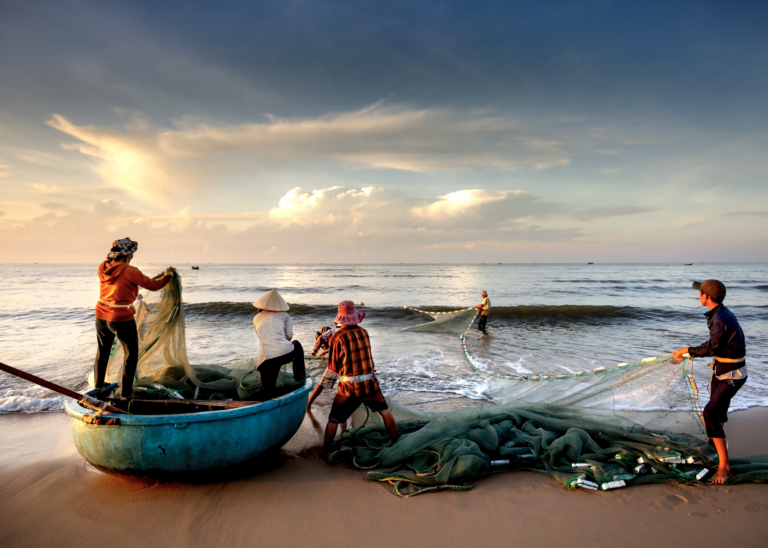Vietnam-Norway Sustainable Aquaculture Partnership: A Pathway to Mutual Growth
Vietnam and Norway have long shared a collaborative relationship in the field of sustainable aquaculture, a partnership that has greatly benefited both countries. Norway, recognized as a global leader in aquaculture, particularly in salmon farming, has offered invaluable expertise to Vietnam, which is one of the largest seafood exporters in the world, particularly in species such as pangasius (catfish) and shrimp. The partnership between these two nations has been instrumental in improving sustainable practices, promoting responsible aquaculture, and boosting both economic growth and environmental sustainability.
Why Norway and Vietnam Formed This Partnership
The partnership between Vietnam and Norway was born out of the mutual need for improving aquaculture practices. Vietnam, with its rich natural resources and vast coastline, has the potential to be a global leader in aquaculture, but challenges such as environmental degradation, disease outbreaks, and overfishing threatened the sustainability of the sector. Norway, on the other hand, has developed world-class aquaculture systems with a strong focus on sustainability, environmental responsibility, and advanced technology. The collaboration was designed to help Vietnam achieve similar success while also opening new markets and opportunities for Norwegian companies in Vietnam.
Key areas of cooperation include:
Technology Transfer: Norwegian companies and researchers have provided Vietnamese aquaculture farms with advanced technologies and systems, including closed containment systems, better feed management practices, and disease control methods.
Capacity Building and Training: Norwegian experts have helped train Vietnamese farmers and aquaculture managers in sustainable practices, which has not only improved yields but also reduced environmental damage.
Joint Research Initiatives: Both countries have engaged in collaborative research projects to address shared challenges such as fish diseases, water quality management, and feed efficiency.
Benefits for Vietnam
Technological Advancements: Vietnam has benefitted from Norway’s cutting-edge technologies in aquaculture, such as water recycling systems, feed optimization, and disease control mechanisms. These innovations have helped improve both the quality and quantity of seafood produced by Vietnamese farms while minimizing environmental harm.
Improved Sustainability: The partnership has pushed Vietnam towards more sustainable aquaculture practices. Norway’s expertise in managing fish health and reducing environmental impacts has been applied to Vietnam’s shrimp and pangasius farms, leading to better water quality management, reduced use of antibiotics, and more efficient use of resources.
Market Access and Trade: Norway’s guidance has also helped Vietnam gain access to more lucrative international markets. By aligning with global standards of sustainability and food safety, Vietnam has been able to expand its seafood exports to Europe and North America, including high-demand markets for premium products.
Benefits for Norway
Expanding Markets for Norwegian Technology: Norway’s aquaculture companies and technology providers have gained access to Vietnam’s growing aquaculture sector. This has opened new avenues for Norwegian businesses to sell equipment, systems, and expertise, creating economic growth opportunities for Norwegian firms.
Collaborative Research: Norwegian researchers benefit from working with Vietnam’s large-scale aquaculture operations, which provide real-world data and opportunities to test new innovations in warmer climates and different species than those typically farmed in Norway (like shrimp and pangasius).
Strengthening Bilateral Ties: Norway has cemented its role as a global leader in sustainable aquaculture by building strong partnerships with emerging players like Vietnam. This enhances Norway’s global influence and reputation in the aquaculture and fisheries industries.
Challenges and Areas for Improvement
Despite the successes of the partnership, there are still areas that need improvement:
Addressing Environmental Degradation: Although the partnership has led to more sustainable practices, Vietnam still faces challenges with environmental degradation due to large-scale farming. Continued cooperation on environmental protection strategies, such as better waste management and ecosystem restoration, is necessary.
Disease Management: While Norway has shared valuable knowledge on disease management, both countries must continue to innovate in this area. Disease outbreaks in Vietnam’s aquaculture farms can lead to massive losses, and more advanced biosecurity measures are needed.
Improving the Value Chain: Vietnam's aquaculture industry can further benefit from improving its value chain. This includes better cold chain logistics, improved processing technologies, and enhanced traceability systems. Norwegian companies could continue to assist by providing technology and training in these areas.
Suggestions to Strengthen the Partnership
Deeper Technological Integration: Norway could expand its involvement in Vietnam’s aquaculture by helping to introduce and implement digital technologies such as artificial intelligence (AI) and machine learning to optimize farming practices, monitor fish health, and manage water quality in real-time.
Sustainability Certifications: Both nations should work together to promote sustainability certification programs like ASC (Aquaculture Stewardship Council) certification for Vietnam’s aquaculture products. This would further enhance Vietnam’s access to premium global markets, aligning with Norway’s reputation for high standards in seafood production.
Expanding Species Diversity: The partnership can explore expanding the range of species farmed in Vietnam, such as adopting Norwegian cold-water aquaculture techniques for farming new species, creating opportunities for diversified income streams in Vietnam and product innovation.
Joint Investment in Research & Development: Increased joint investment in R&D can help solve emerging issues like climate change impacts on aquaculture, new disease strains, and feed sustainability. This would ensure both countries remain at the forefront of global aquaculture innovation.
Pathway to Future Growth
The Vietnam-Norway aquaculture partnership has created a strong foundation for mutual growth in both countries. By continuing to work together and addressing the challenges that remain, this relationship can help lead the global seafood industry towards a more sustainable and prosperous future. With technological advancements, shared expertise, and a commitment to environmental responsibility, the partnership between Vietnam and Norway has the potential to set new global standards for aquaculture.
The key to further success lies in continued collaboration, deeper integration of sustainable practices, and a shared vision for the future of seafood production.
News Source :
Norway signed aquamarine agreement to collaborate with MARD Vietnam
Norway and Vietnam promote marine aquaculture cooperation
Vietnam and Norway strengthen sustainable aquaculture partnership

